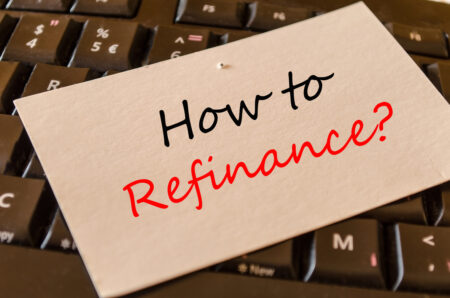Refinance Underwater Private Mortgage
Refinancing an underwater private mortgage is something that should only be used as a last resort. Although it may seem like a good idea, it often leads to a situation in which people cannot keep their house. If a person has a low credit rating and does not have savings to fall back on, a refinance might not be possible. For the mortgage company to agree to a refinance, they need to know that the homeowner has a good chance of keeping the property. If they believe that the homeowner will not keep up payments, they will be unwilling to consider going through with the refinance. If you need help with your refinancing, visit a patentofficelawsuit.info to learn more.
Options for Underwater Private Mortgage
You can not remove money in a submerged sale in case you don't advertise your property. This is the ideal option if you like your nearest and dearest in addition to your neighbourhood. Maybe you or your spouse must move because of a work move. Besides, you have to supply your assumptions.
Short Sale
Some creditors won't even think about a short buy. This is known as a default option. Some argue that this is false. When you eventually fall from the foreclosure - the effect of a strategic default - which adverse decision will remain on your credit report for seven years.
Strategic Default
A mortgage is underwater as soon as you invest more money on it than your home itself is nicely worth. If you wind up immersed on your mortgage, then you're likely to encounter several options you might consider, for example, bankruptcy. The best option, however, is to maintain your assumptions. In the event you want to depart, you can consider things like short sales or strategic defaults.
Refinanсe
You might be stuck in such situations when utilising a decrease if your home's value hasn't rebounded from the interval that you would like to manoeuvre. But refinancing might bring relief in a lower interest rate and a down payment, which might help remove the sting of being submerged. The circumstance? This won't be accurate if you're immersed; instead, you'll have equity. Under this strategy, lenders get monetary incentives to refinance taxpayers' home loans, which owe more into their loans than their homes.
You are going to want to satisfy individual requirements to become involved in HARP. You also can not have missed any obligations during the past 12 months. If your credit rating diminished or your income isn't large enough, you may struggle to convince a lender to refinance your house through HARP. In this particular arrangement, it's entirely possible to cost your home more aggressively to move it quicker. Your lender would choose the reduction. Meagre earnings may be challenging, however. Your lender should take any arrangement you receive, even if you think the deal is fair.

Other Refinance Underwater Private Mortgage Programs
Streamline refinance denotes the refinance of a present FHA-guaranteed mortgage requiring local borrower credit underwriting and documentation. Streamline refinances are offered under charge qualifying and non-credit authoritarian alternatives.
The large loan-to-value (LTV) refinance alternative offers refinance chances to borrowers with present Fannie Mae mortgages that are producing their mortgage payments on time. But whose LTV ratio to get a brand new mortgage exceeds the maximum permitted for limited benchmark cash-out refinance choices from the Selling Guide.
The Freddie Mac Enriched Relief Refinance® Mortgage provides opportunities to borrowers with present Freddie Mac mortgages that are making timely payments but cannot make the most of the conventional Freddie Mac"no cash-out" refinance supplying because the brand new mortgage surpasses highest loan-to-value (LTV) limits.
If a person is interested in refinancing an underwater private mortgage, they should think about refinancing on another property as soon as possible. Once the home is sold, the owner will have little incentive to hang onto the property and put it up for refinancing unless they get out from under the mortgage. If the homeowner cannot get new financing, they could find themselves underwater with their mortgage for years.
Comments
Post a Comment